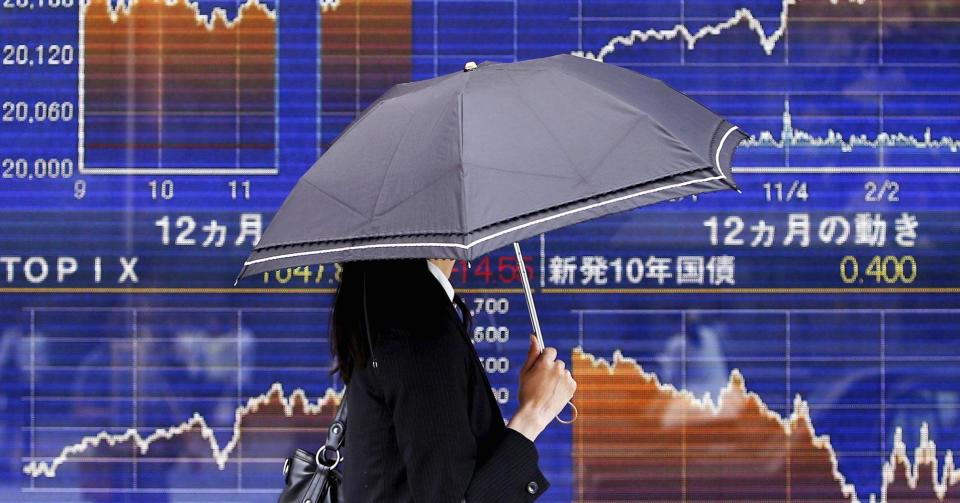A rare Baer-ish call on Japanese stocks

Japan's efforts to kickstart its long-moribund economy spurred a nearly three-year-long stock rally, but some see signs that's hit its limit.
Julius Baer has taken its call on the market to neutral from overweight, with its investment bank last week saying it was selling its currency-hedged position in Japanese stocks, reducing the exposure in the discretionary portfolios the private bank manages for institutions and individuals. A hedged position would seek to counter the effects of a weaker yen on investors with a different home currency; a U.S. dollar investor, for example, would see a dent to unhedged yen-denominated gains when they were converted to the home currency.
Read More Japan's Q2 GDP revised up but pressure on Abe, BoJ remains
"After having been one of our favorite markets since Prime Minister Shinzo Abe and Bank of Japan Governor Haruhiko Kuroda took the helm in 2012 and 2013 respectively, the market (CBOE:.NKXQ) is up 50 percent. The move in the yen (Exchange:JPY=) from 95 to 120 over the same period of time has created positive earnings revisions, increased competitiveness, and increased dividend payouts," Mark Matthews, head of research at Julius Baer (Swiss Exchange: BAER-CH), said in an email Friday.
But in a research note also released on Friday, he noted: "There is little political desire to weaken the currency further." The bank believes the U.S. dollar reached its peak at 125 yen and its 12-month target is for the yen to strengthen to 118 against the dollar. This will bring an end to the earnings boosts from forex.
In addition, Japan's market is vulnerable to profit-taking, with foreign funds likely carrying profit there that they can use to offset losses in other markets, Matthews said. The risk aversion spurring those losses could also push up the yen, he said in a note last week. The yen typically benefits from fund flows seeking safe havens.
That's a view that runs counter to many analysts' expectations that the Bank of Japan (BOJ) is likely to introduce further stimulus, helping to weaken the yen.
Japan needs extra stimulus, says Abe adviser
In 2013, the BOJ launched the first "arrow" of Abenomics, or Abe's plan to push Japan's economy out of its decades-long deflationary slump, with a massive quantitative easing program that sent the yen sharply lower and boosted interest in stocks. With the country's economic data still painting a mixed picture, many analysts expect the BOJ will announce further asset purchases. Japan's wage growth has stalled, rising just 0.2 percent on-year in August adjusted for inflation, data released Monday showed.
"The immediate road ahead is rocky, due to external factors such as the uncertainty surrounding the Chinese economy and also internal factors such as a deterioration of consumer sentiment caused by the consumption tax hike" in April of last year, Societe Generale said in note last week. "We expect the government to re-accelerate its monetary and fiscal policies as soon as possible."
Others expect stimulus will boost Japan stocks.
Bernard Aw, IG (London Stock Exchange: IGG-GB) market strategist, told CNBC last week that Japanese equities could be among the best performers within Asia in the October-December period, citing expectations of more stimulus, low valuations and solid corporate earnings.
But Julius Baer isn't alone in predicting the BOJ isn't preparing for another round of stimulus.
"A BOJ easing is highly unlikely," Kentaro Koyama, an economist at Deutsche Bank (XETRA:DBK-DE), said in a note last week.
Koyama noted that the BOJ already has its "hands tied" trying to maintain its existing quantative easing program of 80 trillion yen-worth of asset purchases per year.
"The BOJ does not have a wide range of options for a further easing," Koyama said, noting the BOJ may start having difficulty finding additional Japan government bonds to continue its asset purchases.
- Nyshka Chandran contributed to this report.
More From CNBC

 Yahoo Finance
Yahoo Finance 
